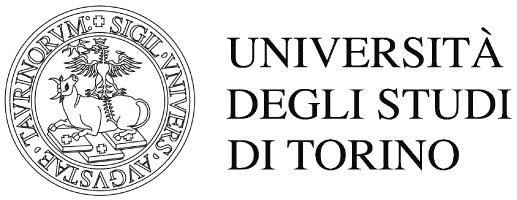TESI DI LAUREA. "Normativity and Power in International Relations: The Character of the World Order to Come"

Università degli Studi di Torino – Dipartimento di culture, politica e società
Corso di Laurea in Scienze internazionali, dello sviluppo e della cooperazione
Normativity and Power in International Relations: The Character of the World Order to Come
Tesi di Vladislav Krassilnikov – Relatore Prof.ssa Anna CaffarenaA questo link, il testo integrale della Tesi (52 pagine), qui di seguito, il testo dell’Introduzione della tesi:
INTRODUCTION
The purpose of this thesis is to investigate the changing logic and character of world order by critically assessing the main scientific contributions to this study area in the field of International Relations. Order is a central concept in political thought. Since ancient times, philosophers, scholars, and policy-makers have investigated the problem of order in a dynamic, often turbulent, and at times even chaotic world. Nowadays the academic debate on this issue is controversial and the political praxis is contradictory.
The theory of International Relations boasts a long-standing tradition of studies on the question of world order. A wide array of different schools of thought have come to diverse conclusions to the problem of whether and how world order is to be attained, managed, and preserved. Liberal Internationalism and Realism are two of the most prominently influential political approaches to the study of International Relations. The question of world order has been addressed both by liberal and realist experts, whose research output is more relevant than ever at a time of sweeping structural change and great political uncertainty.
World order is currently facing major challenges. A profound power shift is bound to have crucial consequences on the distribution of roles, rights, and authority in the international system. Rising powers aspire to be recognized as responsible stakeholders in the international community, but the capacity of the current system to accommodate their ambitions and to transform accordingly remains dubious. The eternal quest to strike a balance between legitimacy and power seems to be acquiring renewed relevance at this critical juncture. It does not therefore come as a surprise that competing views of world order are emerging and are expressed with increasing assertion in political discourse and practice, whereas the perceived universality of the Western system and values in the wake of the end of the Cold War appears to be more and more precarious. The impetuous forces of globalization bring nations together, but rival approaches of governing elites to global governance need to be reconciled, lest international peace and stability be jeopardized.
It shall be clearly stated from the very outset of this dissertation that addressing the problem of world order in terms of acceptance or subversion of the currently dominant model is simplistic. Multiple variables come into play in determining the possible outcomes of the epochal transformation underway, which may result in just as many multilayered realities. It is hence safe to say that room for reflexion on the issue of the management of the evolution of world order is wider than commonly assumed and a sophisticated account, capable of critically assessing the most significant studies on this subject by drawing attention to their weaknesses and capitalizing on their strengths, can be a welcome and innovative contribution to the academic debate and the political praxis.
More recently, John G. Ikenberry and Walter R. Mead – among the foremost scholars of the discipline – published two enlightening articles in Foreign Affairs, reigniting a lively and vibrant scientific debate on the future of world order. Ikenberry is widely regarded as one of the leading global thinkers of International Relations. Most of his work is focused on American liberal order building in the aftermath of World War II. His latest major book, “Liberal Leviathan: The Origins, Crisis, and Transformation of the American World Order”, offers a compelling account of the history and fundamental logic of the US-led international system through the last sixty years. This volume is to be thoroughly scrutinized in Chapter One of the present work, in order to highlight the shortcomings of the liberal internationalist perspective in evaluating the current state of the legitimacy of the American world order and of the power relations underpinning it and in answering to the dilemmas instrumental in predicting the pathways the transforming world order is most likely to take.
Chapter Two is to be devoted to the study of the realist analysis of the evolving character of world order. This approach to the theory and practice of International Relations has arguably found remarkable success both in terms of scientific production and in terms of policy implementation. Walter R. Mead’s major writings on the subject of world order make for an appropriate starting point of the critical study of the realist position, which is to take into account the contributions of other prominent authors, as well, namely Richard N. Haass, Charles A. Kupchan, and Henry A. Kissinger, in order to provide the reader with a systematic, precise, and broad perspective on a heterogeneous school of thought and ultimately on its inadequacies, limitations, and failings at accounting for some of the most complex, profound, and significant dynamics shaping the character of the changing world order today.
Liberal Internationalism and Realism are often conceptualized as antithetical and irreconcilable theoretical approaches. In Chapter Three this generally accepted claim is not called into question, but rather it is demonstrated through an accurate empirical analysis how both schools of thought can together be conducive to a proper comprehension of the changing logic and character of world order. The ultimate aim of this chapter is to take advantage of the varied modern literature on the issue of world order for the purpose of studying the tension between normativity and power in the theory and practice of International Relations in a cautiously previsional perspective.